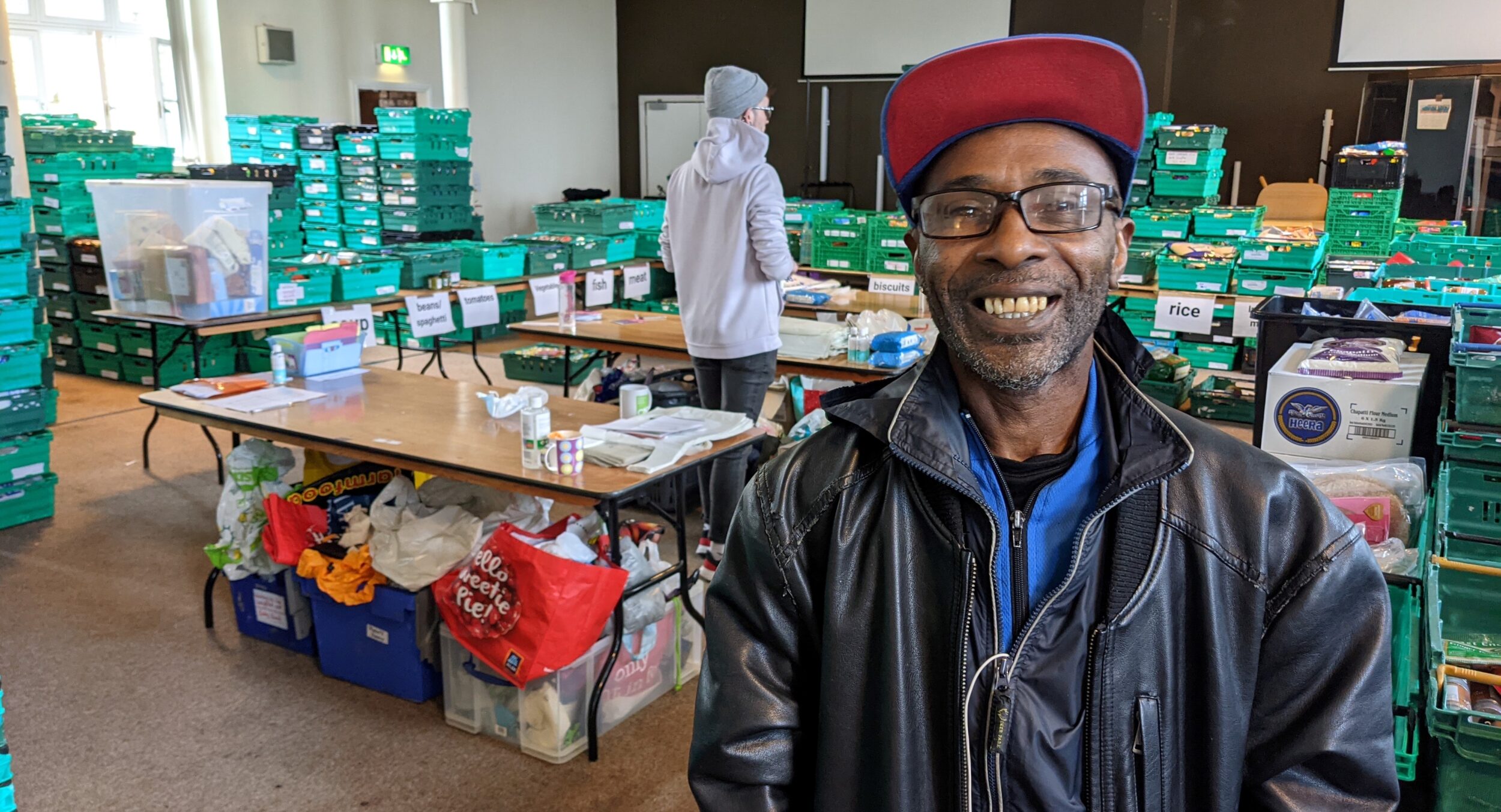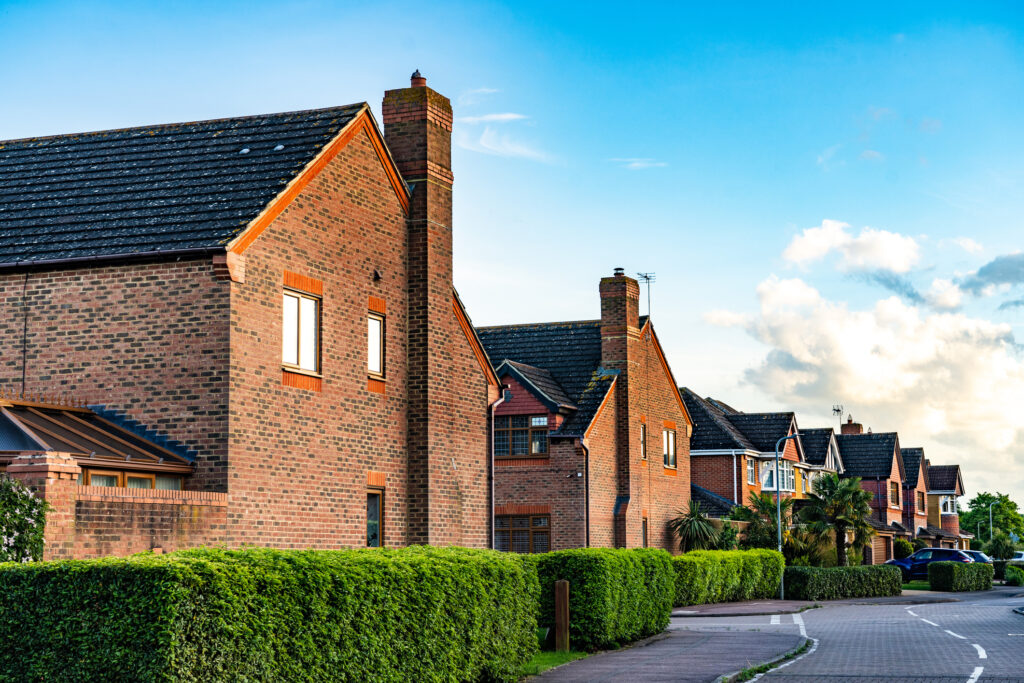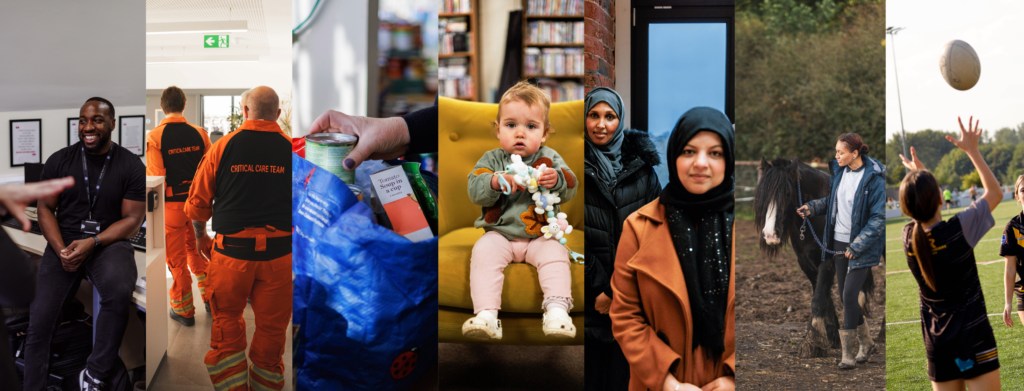
A pastor’s perspective: Applying for a church loan
“I liked the idea of working with a bank that stands for more than just making money.” Find out what the Light Church’s lead pastor, Matt Barlow, has to say about applying for a loan from Charity Bank.
You used your latest Charity Bank loan to buy the Jubilee Centre. Can you tell us about that?
We’ve been meeting as a congregation in the Jubilee Centre, pandemic aside, since 2010. The owners – Christians Against Poverty – decided to sell, so we were going to be made homeless. The building has everything we need, so it made sense to buy it.
I worked for Christians Against Poverty for 21 years, including 14 years as CEO, and only stepped down in 2020. So, it’s actually the second time I’ve bought this building!
How do your loan repayments compare to your previous rent?
The loan repayments are going to be a touch more than the rental payments, as we were on a very good deal. But there’s not much of a difference. And, obviously, we’ve now got an asset and in a few years’ time we’ll own the property outright. Buying the centre made financial sense.
Could you have bought the Jubilee Centre without a loan, by fundraising for example?
We raised over £600,000 for the building, but no one was going to step forward with a cheque for the missing half a million pounds. So the loan was vital.
And why did you turn to Charity Bank for your loan?
We work with a charity called Transforming Lives for Good (TLG) on our education centre. They’ve been with Charity Bank for years and the CEO, Tim Morfin, recommended Charity Bank to us. We’ve had two Charity Bank loans now. The first one was to refinance a piece of land that we own, which we’re now selling.
Charity Bank just seemed like the right place for us. I liked the idea of working with a bank that stands for more than just making money. Plus, Jeremy Ince [Regional Manager of the North Lending Team] is really easy to work with. And the rates are affordable, which is obviously important as we’re a charity, so we need to deliver good value for money.
Was it useful having that one point of contact in Jeremy?
I think a single point of contact is absolutely invaluable, as long as that contact is responsive, which Jeremy is. He did a great job of explaining everything, he was very friendly and nothing was ever too much bother. If we needed anything, we could just pick up the phone or drop him an email. The philanthropic nature of Charity Bank is clearly where Jeremy’s heart lies.
Was it important to you to work with an ethical bank?
Personally, ethical finance has always been important to me and has guided my own banking decisions. That said, if far better rates and an easier process had been available elsewhere, then obviously we would have had to give that bank serious consideration. But we looked and they weren’t.
What would you say to other charities or faith-based organisations who are thinking of applying for a loan? Is there anything they can do to make the process easier for example?
Good project management and good governance is so important. I think we found the process reasonably easy because we’d built a solid business plan beforehand.
The Jubilee Centre is a large building. How do you plan to use the space?
We’re using one of the largest rooms as our community café and to sort food bank donations. Another area will become our education centre. There are several offices. And then the main auditorium will be a multi-purpose space that we’ll use for our church services and for the food bank, as well as for weddings and community events. We’re also looking into creating shared working spaces to generate an income.
So, you’re now bringing all your church and community services under one roof?
Yes. It’ll be a new permanent home for brilliant projects that are already delivering so much social good. We were renting two buildings before the pandemic – the Jubilee Centre and another building that hosted our food bank, TLG education centre and church offices. When the pandemic hit, Christians Against Poverty didn’t need as much space in the Jubilee Centre, so we were able to move the food bank across. If we hadn’t done that, we couldn’t have kept the food bank running as the other building wasn’t big enough to allow for social distancing. Plus, the number of people using the food bank increased five-fold. Even now, it’s twice what it was pre-pandemic.
What benefits are there to bringing everything under one roof?
It’ll be hugely beneficial to have everything together at the centre. The old food bank was split over several floors, so it felt really disjointed and people would be stuck out the back in the warehouse. There’s a real harmony to having everyone together in one place.
Plus, having the food bank and the café in the same space that the church meets in will make people feel more confident about coming along to a church service for the first time, as they’ll already feel comfortable in the space. We’re a very welcoming, open-door church. You don’t have to believe exactly what we believe to come and join in. We want to help people find community and faith, both of which can make a big difference to their lives.
If you need a loan for your church or other faith-based organisation, please contact Charity Bank on 01732 441919.
About Charity Bank
Charity Bank is the loans and savings bank owned by and committed to supporting the social sector. Since 2002, we have used our savers’ money to make more than 1380 loans totalling over £580m to housing, education, social care, community and other social purpose organisations.
Nothing in this article constitutes an invitation to engage in investment activity nor is it advice or a recommendation and professional advice should be taken before any course of action is pursued.


